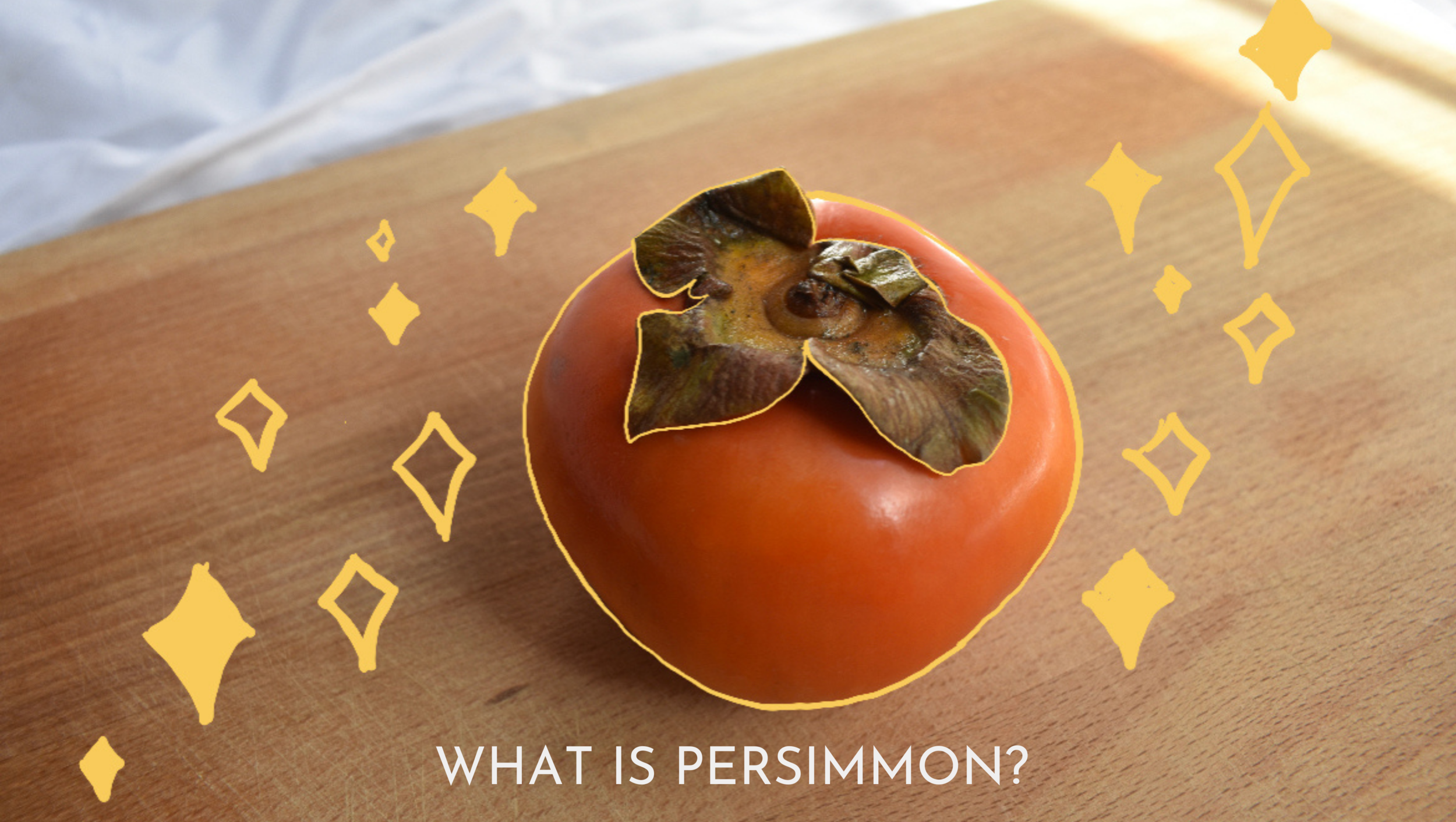What is Persimmon?
Persimmon (pronounced “per-sim-uhn”) is a berry that is otherwise known as “simmons” or even the “sharon fruit.” Persimmons are known for their sweet flavor, and some have even compared it to honey. Persimmons have thick leaves and skin that is slightly coarser than apples, and its texture tends to range depending on the variety of persimmon from a soft texture all the way to a texture similar to the crisp of an apple. Persimmons are very versatile and can be utilized in drinks, such as tea, desserts, such as pie, or even savory dishes, such as curries.
The top global producers for persimmons are China, South Korea, and Japan. The type of persimmon that was first grown in China is known as the oriental persimmon, or formally, Diospyros kaki. There are two main types of persimmon that are grown. One is known as astringent and the other is known as non-astringent. Astringent persimmons are characterized by their lighter sweet taste when eaten ripe and their softer texture and non-astringent persimmons are characterized by their firmer texture and sweet taste, which is often compared to maple or honey. One thing to take note of is that astringent types of persimmon usually are bitter and acidic until they reach a mushy texture. Some types of astringent persimmons include the Tanenashi, Hachiya, Saijo, and Giombo which are native to Japan and China. Some types of non-astringent persimmons include Fuyu, Matsumoto-Wase Fuyu, Giant Fuyu, Hana Fuyu, and Jiro. These types of persimmons are native to Japan and China and are differentiated based on their shape and size, as well as color. According to the California Rare Growers, Inc., In California, the most common type of persimmon is the astringent Hachiya persimmon, along with the Tamopan and Tanenashi varieties.
Persimmon Benefits
Some of the dominant benefits from persimmons include that they have high amounts of dietary fiber, and Vitamins A & C.
Persimmons are a good source of:
Fiber, which helps combat digestive orders such as ulcers, constipation, reflux disease, as well as hemorrhoids . Dietary fiber assists with digestion and works to decrease cholesterol and helps balance blood sugar content.
Vitamin A is essential for great vision as well as good skin and hair growth.
Vitamin C is crucial to proper immune system support, gut health, and eye disease prevention. One of the traditional Chinese uses of persimmon is utilizing the peel of the persimmon to lighten complexion and it is used to also cure hangovers.
According to Traditional Chinese Medicine, otherwise known as TCM, the ‘cold’ energy’(which is based on the concept of ‘qi,’ which translates to energy) of persimmons assists with lung function, and reduces internal bleeding as well as blood clots. In addition, in TCM, persimmon tea is also known to assist with hiccups as well as coughing. It is also known to treat coughing, diarrhea.
References
1.Industry history and culture of persimmon (diospyros kaki thunb.) in China. INDUSTRY HISTORY AND CULTURE OF PERSIMMON (DIOSPYROS KAKI THUNB.) IN CHINA | International Society for Horticultural Science. (n.d.). https://www.ishs.org/ishs-article/996_3.
2.Mayo Foundation for Medical Education and Research. (2020, November 17). Vitamin C. Mayo Clinic. Retrieved October 28, 2021, from https://www.mayoclinic.org/drugs-supplements-vitamin-c/art-20363932.


